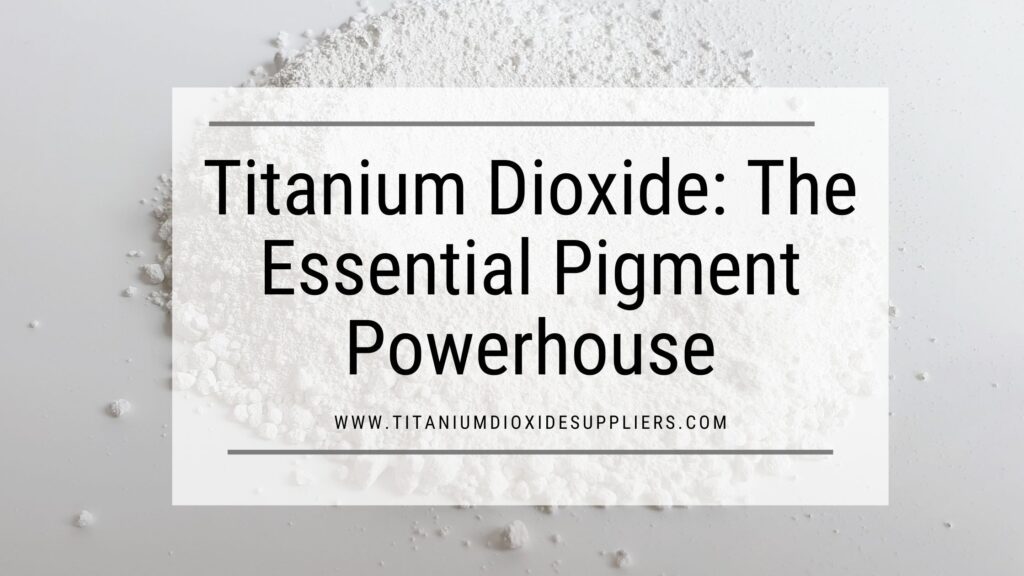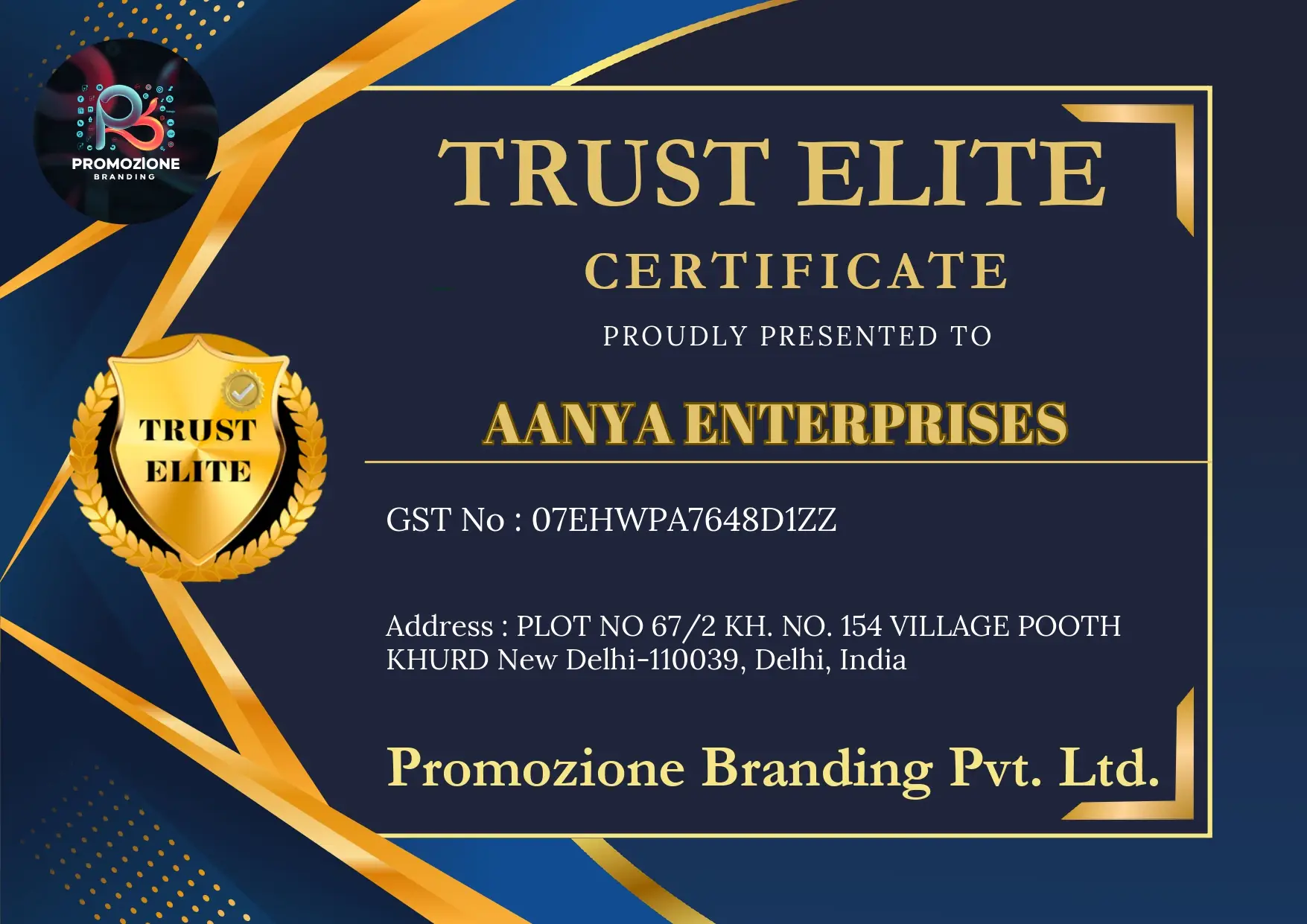From paints and plastics to cosmetics and coatings, Titanium Dioxide (TiO₂) is a powerhouse ingredient that’s nearly impossible to ignore. This naturally occurring oxide of titanium is widely used for its whitening, brightening, and UV-resistant properties. But beyond the chemistry, businesses across industries understand one truth: the quality of titanium dioxide depends heavily on the supplier.
Whether you’re a manufacturer looking to create a vibrant product line or an industrial buyer ensuring consistency in large-scale production, sourcing your TiO₂ from a reliable supplier can mean the difference between long-term success and quality setbacks.
In this blog, we explore what makes Titanium Dioxide indispensable and how to choose the best supplier for your industry needs.
What Is Titanium Dioxide?
Titanium Dioxide (chemical formula TiO₂) is a white, odorless, and non-toxic powder used primarily as a pigment. Its light-scattering properties make it ideal for applications requiring opacity, brightness, and UV protection.
You’ll find it in:
- Paints and coatings
- Plastics and PVC products
- Inks and papers
- Cosmetics and sunscreens
- Food and pharmaceutical products
Its versatility, safety, and stability under UV light make it one of the most commonly used white pigments in the world.
Why Titanium Dioxide Is Critical for Industries
TiO₂ doesn’t just add color — it improves performance.
It enhances opacity and weather resistance in paints and coatings, boosts brightness and durability in plastics, and provides a physical sunblock in cosmetics. It even plays a role in environmental applications, such as air-purifying surfaces and self-cleaning technologies.
This level of functionality explains why the global demand for titanium dioxide continues to rise — and why businesses are more discerning about where they source it.
Challenges of Sourcing Titanium Dioxide
Despite its widespread use, not all titanium dioxide is created equal. Industrial buyers face several challenges when sourcing this compound:
- Purity & Consistency: Even small deviations in grade can affect product quality.
- Regulatory Compliance: Especially in food and cosmetics, where strict safety standards apply.
- Supply Chain Stability: Disruptions in global raw material markets can affect availability.
- Cost vs. Performance: Lower-cost alternatives may compromise product performance or longevity.
- Environmental Certifications: Increasingly, clients seek sustainably sourced, low-impact TiO₂.
That’s where choosing a reliable titanium dioxide supplier becomes crucial.
What to Look for in a Titanium Dioxide Supplier
Sourcing from a dependable supplier ensures that your operations run smoothly, your products remain consistent, and your customers stay satisfied.
Here’s what you should look for in a supplier:
1. Multiple Grades Available
Whether you need rutile or anatase, surface-treated or non-treated variants, your supplier should offer multiple grades tailored to your industry — paint, plastic, cosmetics, or food.
2. Proven Quality Assurance
Check for suppliers who can provide certificates of analysis (COAs), MSDS, and batch-to-batch consistency with every order.
3. Regulatory Compliance
Ensure they comply with REACH, FDA, ISO, and other applicable standards depending on your region and sector.
4. Steady Supply Chain
Choose partners with reliable global or local logistics support to prevent downtime in your manufacturing cycle.
5. Technical Support
Good suppliers often offer formulation guidance, test samples, and tech assistance, making them more than just a vendor.
Why Choose Us as Your Titanium Dioxide Supplier?
As a leading chemical supplier, [Your Company Name] offers high-quality Titanium Dioxide in rutile and anatase forms for various industries. Our product range is sourced from top international manufacturers and undergoes rigorous testing before delivery.
What sets us apart?
- Industry-grade purity & consistency
- Multiple packaging options (25kg, 500kg jumbo bags)
- On-time delivery across India
- Competitive pricing for bulk orders
- Dedicated customer support and tech assistance
Whether you’re in Delhi, Mumbai, Bangalore, or a Tier-2 manufacturing hub, we ensure your titanium dioxide requirements are met without compromise.
Industries We Serve
We supply titanium dioxide to companies in:
- Paints & Coatings
- Plastics & Masterbatches
- Printing Inks
- Cosmetics & Personal Care
- Rubber & PVC
- Pharma and Food (upon request)
Every industry has specific requirements, and we tailor our supply to match them.
Conclusion
Titanium Dioxide remains a silent yet powerful ingredient in modern manufacturing. Its role in providing brightness, opacity, and UV resistance makes it irreplaceable in many applications.
However, the effectiveness of TiO₂ depends heavily on the supplier’s quality, consistency, and reliability. Whether you’re a growing startup or an industrial-scale manufacturer, choosing the right titanium dioxide supplier is a decision that can directly impact your product integrity and reputation.
If you’re ready to make a smarter sourcing decision, partner with a trusted name in the chemical supply chain — one that brings both experience and efficiency to your table.
Frequently Asked Questions (FAQs)
Q1. What is the difference between anatase and rutile titanium dioxide?
Rutile has better UV resistance and weathering properties, making it ideal for outdoor applications. Anatase is softer and is used in indoor or cosmetic applications.
Q2. Is Titanium Dioxide safe in cosmetics?
Yes, when used in approved concentrations and particle sizes, TiO₂ is considered safe by global regulatory agencies like the FDA and EU.
Q3. Do you supply food-grade Titanium Dioxide?
Yes, we offer food and pharmaceutical-grade TiO₂ upon request, complete with compliance documentation.
Q4. Can I get a sample before placing a bulk order?
Absolutely. We provide samples for industrial testing to ensure product compatibility.
Q5. How do I store Titanium Dioxide safely?
Store in a cool, dry place away from moisture. Avoid inhaling dust, and always use PPE while handling.






1 thought on “Titanium Dioxide: The Essential Pigment Powerhouse and Why Choosing the Right Supplier Matters”
Woah! I’m really enjoying the template/theme of this blog. It’s simple, yet effective. A lot of times it’s challenging to get that “perfect balance” between usability and appearance. I must say you’ve done a awesome job with this. Also, the blog loads super quick for me on Firefox. Outstanding Blog!